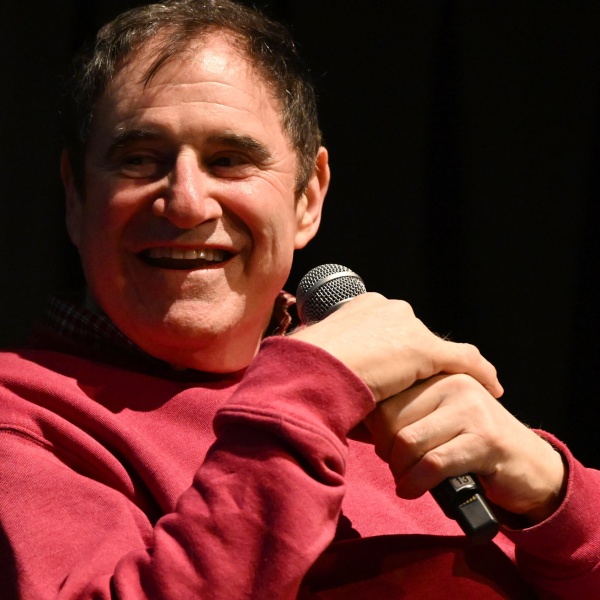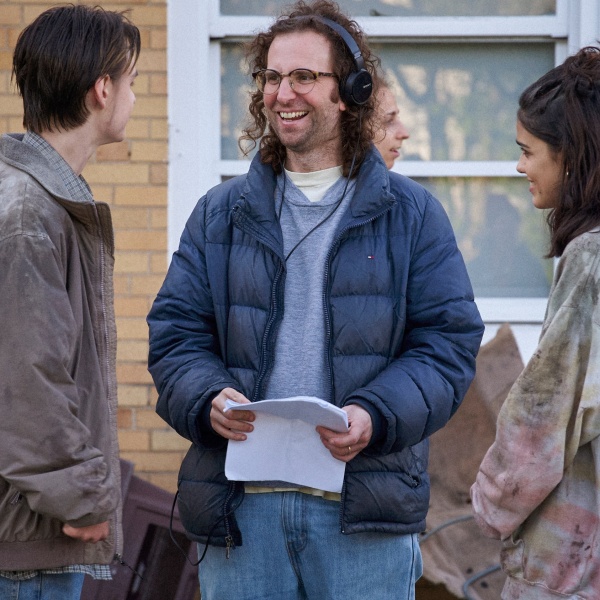
Last year, the Academy Awards expanded the field of Best Picture nominees to ten, ostensibly to give the public the feeling of having influence on what awards committees deemed the finest films of the year. Some argued the move was intended to level the populist playing field in 2008 when “The Dark Knight” was not nominated for a Best Picture award, and the public seemed to be outraged over this move. But one could say the strategy backfired, as the winner was Kathryn Bigelow’s tense war picture “The Hurt Locker,” one of the lowest grossing Best Picture winners in the last few decades. And of course it lost out to the MOR-player “Avatar,” now the highest grossing film of all time.
This year looks to be different, though that could be because of a compromise. The nominees for this year’s top honors are a mixture of the middle-to-upper-middle brow, with many of the less challenging pictures earning a foothold with awards and critics organizations. In turn, the viewers have surprisingly flocked to a number of these pictures in lieu of some of 2010’s more obvious blockbusters. While no one is exactly losing money at the prospect of banking on the lowest common denominator, this is a year in which there is actually a fairly small line separating the Oscar and the People’s Choice. Not entirely sure who merits a pat on the back for this.
Right now, momentum favors Tom Hooper’s “The King’s Speech,” a Weinstein Company release that has only gained momentum after a string of guild awards and surprisingly robust box office. What’s dangerous about this for the Weinsteins is that it’s hard to gauge a passionate groundswell of support for the film, as the praise is often muted, backhanded even. The film is certainly a relic of another era, a “stuffy” costume drama with stiff-upper-lip British actors, and some fear the conservative bent of the film and its supporters suggests the Academy returning to their nominate-anything-Merchant-and-Ivory-touches mindset of the eighties and nineties.

While expanding the field to ten should have also expanded our national dialogue about cinema, the narrative has favored two contenders with near-polar opposite appeal. “The Social Network” was seen as an Academy frontrunner from its fall opening to the Golden Globe win for Best Picture. But along the way, a savvy PR campaign and expansion allowed ‘Speech’ to become the hot topic amongst voters and regular filmgoers alike, and as “Network” has hit DVD, it has lost steam. Could it be because, like most product associated with the internet, the film hit less like a sensation and more like a fad? Has the film lost traction with older voters and critics who don’t find their time worth wasting on Facebook?
Despite what seems like a two-horse race, there’s plenty of intrigue as to who will take home what trophies. Does this year’s race necessarily have any bearing on the outside world? Not particularly, as it’s hard to argue any of these films really genuinely tapped into the zeitgeist. But the Oscars help promote visibility, and visibility often equals capital in Hollywood. And capital dictates the movies that will be made, and enjoyed (or rejected) in the future. So, how did we get here? And where do we go now?
BEST ANIMATED FEATURE
“How To Train Your Dragon”
“The Illusionist”
“Toy Story 3”
While last year featured enough candidates to expand the field to five, more often than not, expect the field to boringly look like this — a Disney/Pixar joint, an indie-art house picture, and a surprising performer from another major animation house. As such, there’s some actual muscle behind this year’s Dreamworks’ entrant, as ‘Dragon’ had enough clout to win the Annie award along with various critical plaudits. But this is a bad year to not be a Pixar offering, as “Toy Story 3” pretty much outgrossed the delightful “The Illusionist” within its first half hour of release on the way to becoming the year’s most successful film domestically and internationally. “Toy Story 3” is also the only of the three nominees here in the Best Picture ten. There are just too many factors in play to not predict a Pixar win. WINNER: TOY STORY 3.
BEST ORIGINAL SCREENPLAY
Mike Leigh, “Another Year”
Scott Silver and Paul Tamasy & Eric Johnson, “The Fighter”
Christopher Nolan, “Inception”
Lisa Cholodenko & Stuart Blumberg, “The Kids Are All Right”
David Seidler, “The King’s Speech”
Perhaps the biggest elephant in the room was how critic and audience favorite “Inception” managed to score seven nominations, but none for Best Director or Best Editing, the two categories the film would need for people to trust the picture as a serious Best Picture contender. It’s certainly dirty pool that the cross-cutting and kineticism utilized in bringing the “Inception” attributes to the forefront were ignored, as was the startling juggling act of story elements Nolan put together behind the camera. That being said, when a particularly strong script like “Inception” or “Another Year” (the deserved winner) is spotlighted in this category, it’s probably a testament to how well the film is liked by certain Academy members, even if others were left cold or confused.
Still, there is momentum at play, as the Weinsteins have carefully orchestrated a royal family PR push to foreground the meticulous research and historical fidelity that came together for “The King’s Speech.” That power play, and the overwhelming multi-category dominance gives the film the edge over the gang-written script from “The Fighter” and, in the very first case of a “MadTV” writer nominated for an Oscar, the slight “The Kids Are All Right” nod. WINNER: DAVID SEIDLER, THE KING’S SPEECH
BEST ADAPTED SCREENPLAY
Danny Boyle & Simon Beaufoy, “127 Hours”
Aaron Sorkin, “The Social Network”
Michael Arndt, “Toy Story 3”
Joel Coen & Ethan Coen, “True Grit”
Debra Granik & Anne Rosellini, “Winter’s Bone”
It’s not just about paying your dues in Hollywood, it’s about stepping aside once you’ve achieved something. And Boyle/Beaufoy and the Coens are simply too freshly inaugurated as multiple Oscar winners to receive the royal treatment in this category. Similarly, “Winter’s Bone” and “Toy Story 3” both come as lightly regarded competition against Sorkin, considered to be one of Hollywood’s most in-demand screenwriters who hasn’t taken home a little gold statue. In the interests of industry quota, and because no one wrote more intense, exciting dialogue this year, Sorkin gets his. WINNER: AARON SORKIN, THE SOCIAL NETWORK.
BEST SUPPORTING ACTRESS
Amy Adams, “The Fighter”
Helena Bonham-Carter, “The King’s Speech”
Melissa Leo, “The Fighter”
Hailee Steinfeld, “True Grit”
Jacki Weaver, “Animal Kingdom”
Weeks ago, this category looked like a done deal, with character actor vet Leo being talked about as a lock. But her position has wavered, thanks to the smear campaign launched against her from the somehow “distasteful” decision she made to pay for her own campaign ads. If you’re going to go against her, you have to go against a system where the work doesn’t speak for itself, the politicking and glad-handling matters, even if you’re taking home gold specifically for the work in question. And if you’re on her side, as you should be, you’ll note that her ad materials were tasteful and low-key and didn’t (and couldn’t) distract from her fellow nominees.
Her toughest competition might emerge from voter fraud, as Steinfeld, the natural lead in “True Grit,” was successfully campaigned in the wrong slot. Steinfeld is regarded as the best part of ‘Grit’ to fans, but the only thing holding her back is the marketing muscle of Paramount, who are backing both her and Leo. Similarly, Amy Adams’ nod was a strong show of support for “The Fighter” by the Academy, but Leo remains their strongest horse.
Weaver seems like the odd woman out, as Sony Pictures Classics has to just be thrilled she’s getting “Animal Kingdom” out in the open. And that leaves Carter, a well-respected industry vet co-starring in a film the Academy loves. There’s a chance the short-sighted amongst the Oscar voters could opt for supporting Carter despite her nothing role in the film, as some have suggested this rank as a Career Achievement award, despite Carter not exactly having that sterling a career. Still, never count out the Weinsteins. WINNER: MELISSA LEO, THE FIGHTER
BEST SUPPORTING ACTOR
Christian Bale, “The Fighter”
John Hawkes, “Winter’s Bone”
Jeremy Renner, “The Town”
Mark Ruffalo, “The Kids Are All Right”
Geoffrey Rush, “The King’s Speech”
Again, the potential to allow ‘Speech’ to sweep the awards could very well get Rush into the winners’ circle for the second time ever. If only Christian Bale — a megastar with “issues” if his on-set blowups are to be believed — were not recognized, Rush would be in. Alas, Bale, who has never before been nominated, walks away with the “The Fighter” under his arm, and the once-and-future Batman will earn the plaudits he’s sought his entire career.
Meanwhile, Ruffalo and Renner have already graduated from indie films to “The Avengers,” so the suggestion is that neither of them have anywhere farther to go from this point in their careers, and Hawkes isn’t necessarily even considered the best thing in the Oszark noir thriller. WINNER: CHRISTIAN BALE, THE FIGHTER.
BEST ACTRESS
Annette Bening, “The Kids Are All Right”
Nicole Kidman, “Rabbit Hole”
Jennifer Lawrence, “Winter’s Bone”
Natalie Portman, “Black Swan”
Michelle Williams, “Blue Valentine”
Right off the bat, people just did not see “Rabbit Hole” or “Blue Valentine.” The former received little to no promotion, and the latter was a Weinstein Company effort, meaning that their energies were pooled into “The King’s Speech” instead. That leaves Lawrence, an up-and-comer, and Bening, an early frontrunner considered as much for her work as much as for her (irrelevant) career, which was a lot less interesting than we remembered it in retrospect. People screaming for Bening to receive this as a defacto “Lifetime Achievement Award” most likely reminded voters how they are incredibly unlikely to sit through many of Bening’s performances in mediocre movies again.
And so, peaking at the right time with several high profile movie roles and a heavily publicized pregnancy, Natalie Portman has risen about her deconstructionist role to become a must-vote figurehead. Peer pressure hit hard when voters forgot they were voting for Sandra Bullock in the still-laughable “The Blind Side,” and Portman’s likability will lead “Black Swan” to Oscar success in this category. WINNER: NATALIE PORTMAN, BLACK SWAN
BEST ACTOR
Javier Bardem, “Biutiful”
Jeff Bridges, “True Grit”
Jesse Eisenberg, “The Social Network”
Colin Firth, “The King’s Speech”
James Franco, “127 Hours”
While Oscar buzz surrounded Franco since “127 Hours” was first announced, it was clear Franco was not able to get out of the way of Franco. Which is alright with the multimedia madman, who probably does not hold an Academy Award in very high regard anyway, instead moving on from “127 Hours” to other Franco projects, whether they be taking a class on Franco, teaching a class on Franco, showing up on a soap as Franco, and doing big budget blockbusters where Franco is conceptually sublimated. In other words, the Academy does not like giving the award to someone who doesn’t give a crap.
Bardem was muted and distant in “Biutiful,” which made for a fascinating performance, but not an awards-worthy one — blame the system, yo. Though let’s face it with Sean Penn and Julia Roberts campaigning for their Spanish friend if there’s one upsetter in the bunch Bardem could be the man. Probably won’t happen though. No one seriously considers Bridges’ work last year for “Crazy Heart” inferior to his Rooster Cogburn, so he’s clearly not “due” by any stretch of the imagination. While Eisenberg is playing a socially-awkward nerd that Hollywood has seen in a number of Eisenberg performances, this is Firth’s to lose. In addition to being the focal point in a film many are ready to consider the year’s best, some believe Firth deserved to be honored for last year’s “A Single Man.” Firth is well-liked enough that his performance has been the frontrunner in this category for months, and nothing has happened to change that. WINNER: COLIN FIRTH, THE KING’S SPEECH
BEST DIRECTOR
Darren Aronofsky, “Black Swan”
David O. Russell, “The Fighter”
Tom Hooper, “The King’s Speech”
David Fincher, “The Social Network”
Joel Coen And Ethan Coen, “True Grit”
Like Best Picture, this has become a two-horse race. Which means the Coens, for all their success, are strictly viewed as a very dark horse. Same goes for Aronofsky and O. Russell, who may still have to shake their indie pedigrees (and, in O. Russell’s case, their past) to receive serious Oscar attention. Don’t think it’s lost on some voters that Aronofsky and O. Russell are leaping feet first into a comic book sequel (“The Wolverine”) and video game adaptation (“Uncharted”) next, respectively.
Which means it’s Hooper vs. Fincher. Hooper’s roots are more classical, as he’s a BBC apprentice who has risen up the ranks to feature films. Though it’s going to be impossible to not measure his chops against Fincher, who, in Academy parlance, has paid his dues: he’s made hits (“Seven”), flops (“Zodiac”), cult films (“Fight Club”) and Oscar bait (“The Curious Case Of Benjamin Button”). While Fincher’s reputation is a bit prickly amongst some execs, most can’t ignore that, in “The Social Network,” he turned the Harvard landscape into a shark tank, where the rage of the overlooked underclassman can strike at any point. This becomes a tech award, essentially, as voters will find it hard to acknowledge there was a moment in the occasionally alien “Network” where they found themselves looking away. WINNER: DAVID FINCHER, THE SOCIAL NETWORK
BEST PICTURE
“Black Swan”
“The Fighter”
“Inception”
“The Kids Are All Right”
“The King’s Speech”
“127 Hours”
“The Social Network”
“Toy Story 3”
“True Grit”
“Winter’s Bone”
“Black Swan” began life as a nightmarish ballet thriller, so it’s honestly quite amusing how idiosyncratic Darren Aronofsky has turned it into an Oscar favorite. Even with the film’s likely $200 million worldwide gross, this film is significantly darker than its competition, and stands out like a sore-thumb amongst the nominees. It’s sad that films like this tend to be viewed by some voters as almost TOO cinematic to win, as it’s a punishing, relentless experience. Let’s face it, most voters are looking for a pleasant or fun time at the movies. “Black Swan” earns it’s place by being an abstract horror film, but the odds are against a win because it’s an abstract horror film.
There’s a good chance “The Social Network” and “The King’s Speech” will cannibalize themselves by splitting the voting body in two. If there’s a possible third option that could rise up and take the prize, “The Fighter” is it. The film may have two of the acting awards sown up, and along with a strong seven nominations overall, it seems that voters may be genuinely turned on by the crowd-pleasing nature of the film. “Rocky” was a Best Picture winner, and most voters will acknowledge “Raging Bull” deserved to win in the early eighties. It would be an upset, but this picture isn’t genuinely liked for nothing.
“Inception” faced a common problem — the film was a summer release, and more than any other year, there was a serious deluge of prestige pics released at the tail end of 2010. At some point, audience and critics stopped unpacking the movie, and a serious drop in visibility for the film and director Chris Nolan- – who didn’t campaign as much as sip Daiquiris on a beach in Cabo while scribbling “Batman” notes on a cocktail napkin. The last of recognition in the Best Editing and Best Director categories seals the film’s fate, as this might be a case of a large bloc of voters who liked, but simply didn’t get the film. If anything seems clear, the film has its fans in the Academy, but none too excitable.
“The Kids Are All Right” likely broke through on the strength of its two nominated actors, and is probably an example of the early-year indie slot these ten nominations will usually have. It’s a case of the film being remembered by Oscar voters not because it was very good, but because last spring produced a dearth of films worth discussing at all. Measured against some of the other nominees, there just might not be enough superficially at stake in “The Kids Are All Right” to avoid viewing the film as dispensable.
“The King’s Speech” seems to have stolen the thunder away from its competition in a big way, as the film hadn’t even approached its peak until after losing the Best Picture Golden Globe. Credit the Weinsteins who smartly platformed the film slowly, using unique PR tactics — whining about the R-rating, and getting the irrelevant opinion of the Queen — and a sneakily strong ad campaign that got the film in the face of audiences. There’s a certain amount of identification voters have with these films, which is why period films have their fans, as there’s something innately flattering about identifying with royalty. The theories heard so far suggest that after a couple of years of genuinely abrasive, unusual contemporary films being honored by the Academy, they’re finally ready to swing the other way.
“127 Hours” never gained much awards traction, and a lot of this has to do with the film’s near total rejection from audiences. Fox continued to expand the film to limited returns despite the picture not even ruling the roost in art houses, where voters noticed the picture’s craft but saw the empty audiences. The film died on the vine, and likely ranks in the bottom five of whatever films might compete for Best Picture this year. Again, not that Franco cares.
“The Social Network” seemed to have this in the bag months ago, and even stood out as the people’s choice after box office success suggested there was momentum to the critics’ praises. Then “Black Swan,” “True Grit” and, especially, “The King’s Speech” significantly outgrossed the film, putting that status in doubt. A lot of this has to do with a very thin line dividing critics and voting committees. “The Social Network” features a young, vain, weasel-y protagonist who scams, lies and stammers his way to massive financial success, and in some ways, he plays as the hero in a story about desperate little people. This, in and of itself, is flattering to most critics. But it is a turnoff for establishments like the Academy, who don’t exactly see themselves in the twerpy, two-faced cynic that onscreen Mark Zuckerberg represents. Those praising the film as another “Network” should be aware that “Network” lost Best Picture to “Rocky” and, despite the presence of “The Fighter,” “The King’s Speech” has a lot more in common with Sylvester Stallone’s boxing drama.
By virtue of being the only billion dollar film amongst the nominees, “Toy Story 3” certainly stands out. But it has to be impossible to fight the inherent bias in play: it is not only an animated film, which some viewers just don’t take seriously at all, and it is a second sequel. Sequels are still looked down upon by certain voters, but part three of a cartoon series? “Avatar” made TWO billion dollars last year, and certain voters STILL couldn’t get aboard, as that picture was, for the most part, animated. Pixar looks like they’ll be getting an annual nomination, as John Lassetter has massive pull in the industry, but there’s the sentiment that “Toy Story 3” is not the best of Pixar’s offerings.
“True Grit” is the first genuine blockbuster for the Coen brothers, which raises the film’s profile, but puts it at a disadvantage. Academy voters seem to be aware of the idea of “too much success” and the Coens, who won the big prize for “No Country For Old Men” and even saw their eccentric “A Serious Man” earn a nomination last year, certainly qualify. “True Grit” has its supporters within the Academy, but there are likely those continuing to press the idea that “Grit” is a remake, and on the scale of respectability, remakes rank somewhere with sequels. Unless it’s a remake of a movie no one has heard of, as it was when the Oscars improperly credited “Infernal Affairs” to Japan instead of China during “The Departed”’s Oscar success. It’s ok, Academy, they’re all the same over there.
“Winter’s Bone” stands as a success story as an earlier year release from Roadside Attractions that somehow got into the Oscar ten. Still, voters have to actually WATCH these movies, and while the picture had to have some support amongst the voting body, you can guess how many heard the words “Ozark” and “noir” and figured, eh, I’ll sit this one out. Debra Granik was honored for her work. Her reward is that she gets to show up. WINNER: THE KING’S SPEECH.





